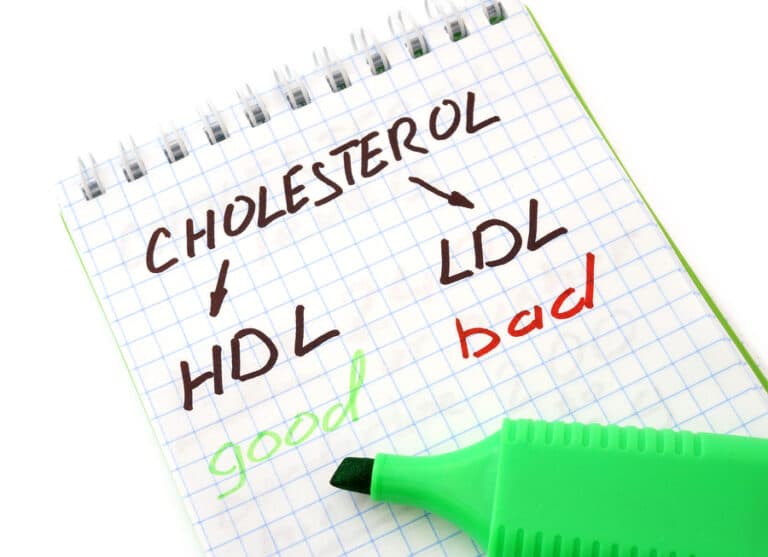Every September is National Cholesterol Education Month, because while everyone has heard of high cholesterol, there is still a lot to understand about cholesterol levels and why they’re so important.
What Is Cholesterol?

Cholesterol is naturally produced in the body. It’s necessary in building cells for the body, and there is such a thing as “good” and “bad” cholesterol. When cholesterol levels get above recommended levels, that can create problems in your senior’s body. High cholesterol is hereditary for some people, but it can also be the result of other health issues or lifestyle choices.
Why Is High Cholesterol Bad?
High cholesterol is something to be concerned about because it can lead to deposits of this fatty, waxy substance within blood vessels. What that does is slow blood flow and eventually completely restrict blood flow. That can lead to serious issues like heart attacks, strokes, and worse.
Risk Factors for High Cholesterol
So, besides a family history of high cholesterol, it’s important to know what else can contribute to this health issue. Some of the risk factors are not controllable, like your senior’s age. Older adults are more likely to have high cholesterol, but you can’t turn back time. Other factors, like dietary choices, lack of exercise, and smoking are factors that your elderly family member can do something about.
Complications of High Cholesterol
Moderate levels of high cholesterol may not cause many symptoms or complications. But over time, too much cholesterol in your senior’s blood vessels can lead to issues like chest pain, stroke, heart attack, blood clots, and more. Since blood is responsible for carrying oxygen throughout the body, your elderly family member may find that she’s short of breath more often, too.
Treating High Cholesterol
High cholesterol typically doesn’t have any symptoms in the earliest stages. There are a few different types of medications that are often used to treat high cholesterol and to bring those numbers down. If your elderly family member does take these medications, her doctor will want to test her levels periodically to make sure she’s on the right medications and the right dosage. The first line of attack for high cholesterol is usually lifestyle changes, however.
Lifestyle Changes that Help Cholesterol Levels
Lifestyle changes are important, but they’re often things that people are reluctant to embrace. Exercising regularly, with the blessing of your senior’s doctor, is a good first start. It’s also important that she eats a diet that focuses on heart health. All of this is a lot easier with help, especially from home care assistance. Home care providers are able to remind your senior to stay on track and help with things like preparing healthy meals and snacks. Home care assistance can also help your senior to get to her doctor’s appointments, which are another factor in ensuring she’s on target.
High cholesterol can definitely be managed, it just takes a comprehensive plan that takes all of your senior’s risk factors into consideration. Her medical providers can adjust her plan as necessary, helping your senior to finetune her attack on high cholesterol.
If you or an aging loved one are considering hiring Home Care Assistance in Laurens, SC, contact Heart of the Carolinas Home Care at 864-991-3116. Providing Home Care Services in Greenville, Simpsonville, Greer, Anderson, Spartanburg, Mauldin, Seneca, Laurens, Charleston, Columbia and the surrounding areas.
- Is it Possible to Prevent Family Caregiver Burnout? - April 25, 2025
- Home Care Assistance Helps Seniors After A Fall - April 9, 2025
- How Home Care Supports Seniors Who Are Hard of Hearing - March 28, 2025

